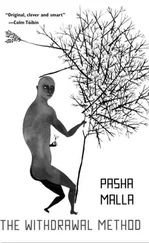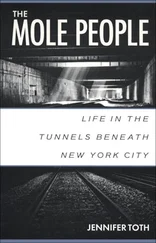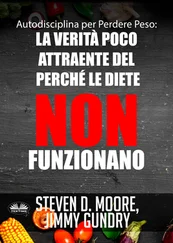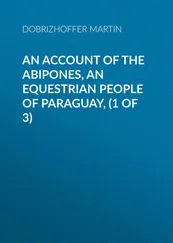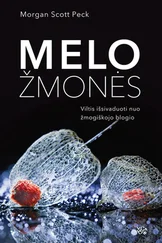Put it right. If only, Mrs. Mayor.
What. Why not.
Oh, you know. I have only certain powers and only those at certain times. So, this is to say, that even if I wanted to —
You don’t want to.
I’m not saying that. What I’m trying to express is the fear — yes, my fear — that I’ve brought things to a point beyond my control. I can’t fix anything now. They must just go, they must just happen. Whatever happens, happens.
For a reason.
For a reason? No! For what reason? What reason could there possibly be?
You don’t believe in anything.
Not true. I believe that nothing is what it seems. It’s always something else. Or at least we must understand it in terms of something else. The thing itself, Mrs. Mayor, is never quite enough. We must always examine it sideways. We must —
Please, just stop it.
Oh, Mrs. Mayor, are you the duck who cannot imagine herself a hunter?
What.
At any rate, I won’t be around here for a while.
And I —
And you, Mrs. Mayor, you should join me. Let me be your gateway.
Gateway? To what?
To your own past, if you wish.
The Mayor’s throat hitched. She bit her lip.
Well, said Raven, I do believe it’s time for me to go. Will you join me?
Will I? Go with you? No. No, I can’t.
Ah. No?
No.
As you wish, said Raven.
Whispering, rustling. A sucking sound of water sucked down the drain.
Then silence.
A breeze gusted over her.
And the Mayor was released.
The cart began rolling down the slope, that sudden urgent tug of gravity. She picked up speed, was soon hurtling down, the wind whipped her face and whistled in her ears. As she plummeted the blackness filled with shrieking. This grew: louder, hysterical, she felt it inside her bones, her teeth, her arteries and veins — and then it stopped, she was lifted, or dropped, the cart tumbled as if into a void. The Mayor felt disembodied, light. She was floating, drifting, like a rogue planet through a galaxy without stars.
And then a voice spoke and broke the spell: Goodbye, sweet queen. I’ll see you in your dreams.
 DINE STOOD UP. Ignoring the crowd’s scolding — Sit down! — What the fug! — You’d make a better flat than a window! — she was hypnotized by the image onscreen: the naked woman at the edge of the trestle, black hair dancing around that gaunt, haunted face. A hand grabbed Adine’s arm, tried to tug her back down into her seat, but those huge and tragic eyes onscreen were too much: they released something from Adine. She felt released.
DINE STOOD UP. Ignoring the crowd’s scolding — Sit down! — What the fug! — You’d make a better flat than a window! — she was hypnotized by the image onscreen: the naked woman at the edge of the trestle, black hair dancing around that gaunt, haunted face. A hand grabbed Adine’s arm, tried to tug her back down into her seat, but those huge and tragic eyes onscreen were too much: they released something from Adine. She felt released.
But then with a great upward sweep of black hair the face was gone. For a moment empty space consumed the screen, then the film cut promptly to Gregory Eternity and Isabella and the remaining unkilled members of their entourage being driven back from Topside Drive into People Park, where the treetops are ablaze with flaming fires like tall, skinny, brown and bark-skinned people with their hair on fire, except not running around but just standing there stupidly, because they’re trees, and amid a crackle of gunfire the invaders advance, dozens of shadowy figures like the somehow cloned shadows of something evil’s melena-black shadow —
Enough. Adine squeezed out along the aisle between knees and chairbacks. Heads craned, voices hissed: Hey! — Get out of the way! — We’re missing our fuggin movie here!
In the lobby sunshine came streaming in, garish and disorienting, the first daylight she’d seen in months. Through it Adine stumbled to the bathroom, splashed water on her face, her vision adjusted, shapes defined, the pain faded. She observed herself in the mirror, hair a limp greasy mophead, colour had deserted her face as light from a waning day.
The only sound in the bathroom was the dripping tap. Adine tightened it. The dripping continued. And the sink to her left started dripping, and so did the one to her right, and all the faucets were leaking thin streams, then torrents, cranked open by unseen hands.
She stepped back, her feet encountered more water: the toilets were overflowing, a slimy puddle crept from the stalls. Adine tracked sneaker-prints to the bathroom’s exit and out into the foyer. From the men’s room water was oozing too, the same dark water, the sickly whiff of sewage beneath it.
The box office was empty, no ushers were about, no one worked the candyapple counter. Adine stuck her head back into the theatre: It’s flooding, she warned them, is there someone who works here, the bathrooms are flooding. A few scattered shhhs replied, no one turned from the drama onscreen: bombs explode like detonating broken hearts and Gregory Eternity rages alongside Isabella, the love of his life. .
Back in the lobby Adine tried the payphone: dead. She left the receiver dangling and headed for the exit, the rug squelched underfoot in a buttery frogspawn, a bubble lifted, and as she pushed out into the crowds on Parkside West it burst and released a little waft of yellow gas as if hatching a ghost.

AS IT CAREENED around the bluffs the train’s doors bulged, the NFLM had packed in too many passengers. Kellogg could feel that odd alien hum of a stranger’s flesh upon his own, he offered the woman beside him a tired smile, she returned it reluctantly and looked away. The air was warm jelly, skin stuck and peeled off skin with a tacky, ripping sound.
Kellogg’s shirt was drenched, Elsie-Anne’s hair sopping, the sweatshirt slathered to her as wet leaves over a rock. The speaker system announced the next stop, Budai Beach Station, but the Helper assigned to this car, a rasping character behind Kellogg (nametag: Bean ) corrected it: No stops, folks, just straight around the Yellowline to Whitehall, a ferry’ll take all you mainlanders home.
This failed to raise morale. The human cargo rocked silently in a steady, sloshing rhythm as the train travelled alongside the lake. Kellogg hooked his daughter into a gentle headlock. This is it, he said. They’re taking us home, Annie. Home.

OVERTOP OF WHAT had once been Lakeside Drive Sam paddled the door, naked. The pain in his face had dispersed into a dull throb through his body. He’d wedged the remote in the dry spot between his chest and raft. He saw only light, the microwave’s blazing, the last thing he’d seen was all he’d ever see. Yet within this were shades: the view to his left darkened where the bluffs blocked the sun, to his right was the greyish wash of the lake.
The light to his left brightened, what he saw now looked bleached. Bay Junction, Sam figured, the bluffs flattening. Were he to cut north he’d be heading into downtown. He was close. Sam felt tired — tired of this work, which was over. He’d not known how it would end. But so this was it, time’s machine sucking everything under.
Soon he’d be home. He could smell the earthy potatoey rot of the dug-up ground, the sour gasoline odour of the diggers and bulldozers, the dust of crushed and ruined buildings scratched his throat. Up he’d go, enter the A-Blocks and swim north along the Throughline, and at home in H-Block, Unit 53, he’d find Adine, watching TV, and together they’d wait for time to wheel all the way back to the beginning, to the end.

THE CROWDS COLLECTING on Parkside West had begun to tip into People Park. Debbie considered joining the convoy down the Slipway, but Helpers were among them, randomly checking papers. Instead she fled to the Galleria, where an anxious-seeming woman in a postalcarrier’s uniform held the door open and asked, You looking for someone? Debbie nodded. Friend or family? She stared. Well whoever you’re looking for, said the postwoman, they aren’t here. No one you’d know is in here. And she joined the procession descending into the park.
Читать дальше
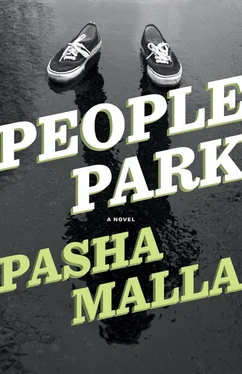
 DINE STOOD UP. Ignoring the crowd’s scolding — Sit down! — What the fug! — You’d make a better flat than a window! — she was hypnotized by the image onscreen: the naked woman at the edge of the trestle, black hair dancing around that gaunt, haunted face. A hand grabbed Adine’s arm, tried to tug her back down into her seat, but those huge and tragic eyes onscreen were too much: they released something from Adine. She felt released.
DINE STOOD UP. Ignoring the crowd’s scolding — Sit down! — What the fug! — You’d make a better flat than a window! — she was hypnotized by the image onscreen: the naked woman at the edge of the trestle, black hair dancing around that gaunt, haunted face. A hand grabbed Adine’s arm, tried to tug her back down into her seat, but those huge and tragic eyes onscreen were too much: they released something from Adine. She felt released.
